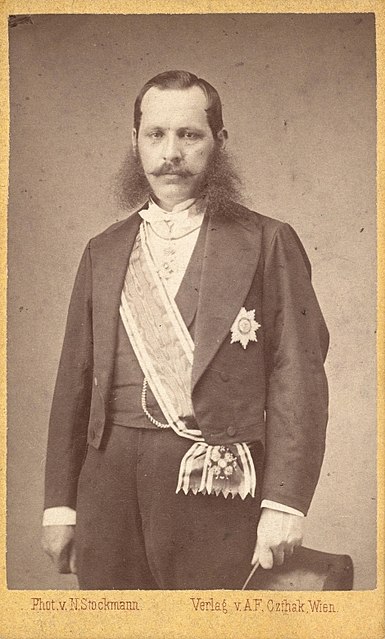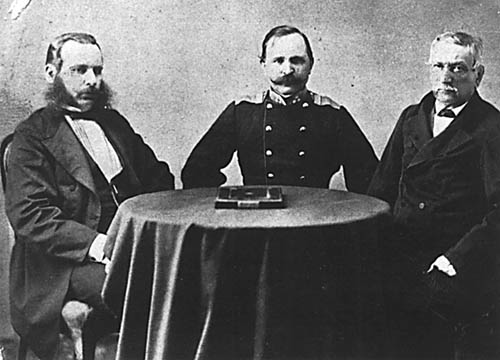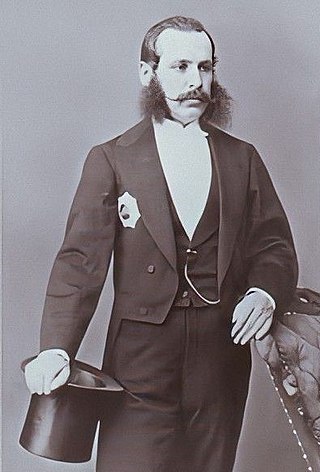OUR BLOG
JOVAN RISTIC
SERBIAN DIPLOMATS

Jovan Ristic, politician, statesman, and historian, is one of the greatest statesmen of Serbia in the 19th century. He was the founder and leader of the Liberal Party and one of the most powerful people in Serbian politics from 1868 to 1893. He was the Minister of Foreign Affairs, a regular member and, one-time president of the Serbian Royal Academy, and even twice a deputy on behalf of minor rulers, first on behalf of Prince Milan Obrenovic, and later on behalf of his son King Alexander.
A man of impressive intelligence and the only Serbian diplomat who could speak on an equal level with his European colleagues, he was born in 1831 in Kragujevac, in a poor family. He graduated from the Belgrade Lyceum with a scholarship from the Serbian state and earned a doctorate in philosophy from Heidelberg. He continued his studies at the Sorbonne and then in Germany, where he studied with the the celebrated historian Leopold von Ranke, intending to pursue a career as a historian.
Although he failed to obtain a position as a professor of history at the Belgrade Lyceum, he became a state director working in the Ministry of Internal Affairs, which at the time was headed by the influential political leader Ilija Garasanin. He soon married Sofia, the daughter of the richest Belgrade merchant Hadzi Toma. In addition to fortune, the marriage brought him the favor of the Serbian princes from the Obrenovic dynasty.
In 1861, Garasanin sent Ristic to the Serbian Embassy in Constantinople, which marked the beginning of his successful diplomatic career. He talked intelligently with the Turks, and in 1867, it resulted in the abolition of the Turkish fortresses in Serbia.
First viceroyalty
After the murder of Prince Mihailo in May 1868, Colonel Milivoje Blaznavac, with the help of the Belgrade garrison, brought the minor Prince Milan Obrenovic from Paris to the throne. By the time he came of age, a viceroyalty was established in which, in addition to Blaznavac, Ristic and Jovan Gavrilovic participated.
When the Great National Assembly confirmed Milan’s election as the prince, Ristic used its authority to reshape the administration in Serbia. Therefore, in 1868, he convened a delegate to the Nikolj Board to consider whether Serbia needed a new constitution to replace the Turkish Constitution of 1838.
Although the Delegates agreed with the adoption of a new constitution that would give the National Assembly a greater role, the issue of organizing the assembly remained unresolved, so the Nikolj Committee was dissolved. The draft of the new constitution was written by Ristic himself. The dedicated constitution was adopted in opposition to the Turkish constitution in force at the time, which does not allow changes to the constitution during the prince’s minor years. And yet, Prince Milan never liked Ristic and was much more sympathetic to Jovan Marinovic.

Jovan Ristic, Milivoje Blaznavac and Jovan Gavrilovic, regents until Prince Milan Obrenovis came of age
Berlin Congress
It was recorded that, owing to Ristic, Serbia gained independence at the Congress of Berlin.
Namely, although it was never implemented, the San Stefano Agreement had far-reaching consequences for the South Slavs and their relations with Russia. The agreement caused a major turn in Serbia’s foreign policy, in which Prince Milan and Minister of Foreign Affairs Ristic played a major role. Without humiliating Serbia and its government, Ristic discreetly and cautiously carried out a turn toward Austrian foreign policy. Avoiding haste and imprudence, he asked for Austrian protection and support, obtaining it without offense to Russia, on which he still counted during his Vienna mission and at the Berlin Congress.
Most of the decisions, which were confirmed by the Berlin Agreement, were reached unofficially, behind closed doors, but the Minister of Foreign Affairs at that time, Jovan Ristic, played a key and positive role. He was helped by the envoy Kosta Cukic, and together they were the most capable that Serbia had at that time. Ristic’s position was difficult and delicate: he was pressured by Vienna to cede territories in the west, and by Russia to cede the areas around Pirot and Trna to Bulgaria in the east. He struggled to ensure adequate profits for Serbia, while at the same time maintaining friendly relations with both powers, which was not an easy task at all. In Berlin, Serbia gained a quarter of its territory, and of all the Balkan diplomats, only Ristic, who appeared modestly at the congress, achieved everything that Serbia needed, not undermining any power and remaining on good terms with everyone.
It is less well known that he worked as an editor of “Srpske Novine”. Ristic popularized Shakespeare in Serbia and, in addition to several historical books, he also wrote one of the first histories of Serbian literature.

He received the Royal Order of the White Eagle and many of other decorations. He died in Belgrade in 1899.







 2018
2018